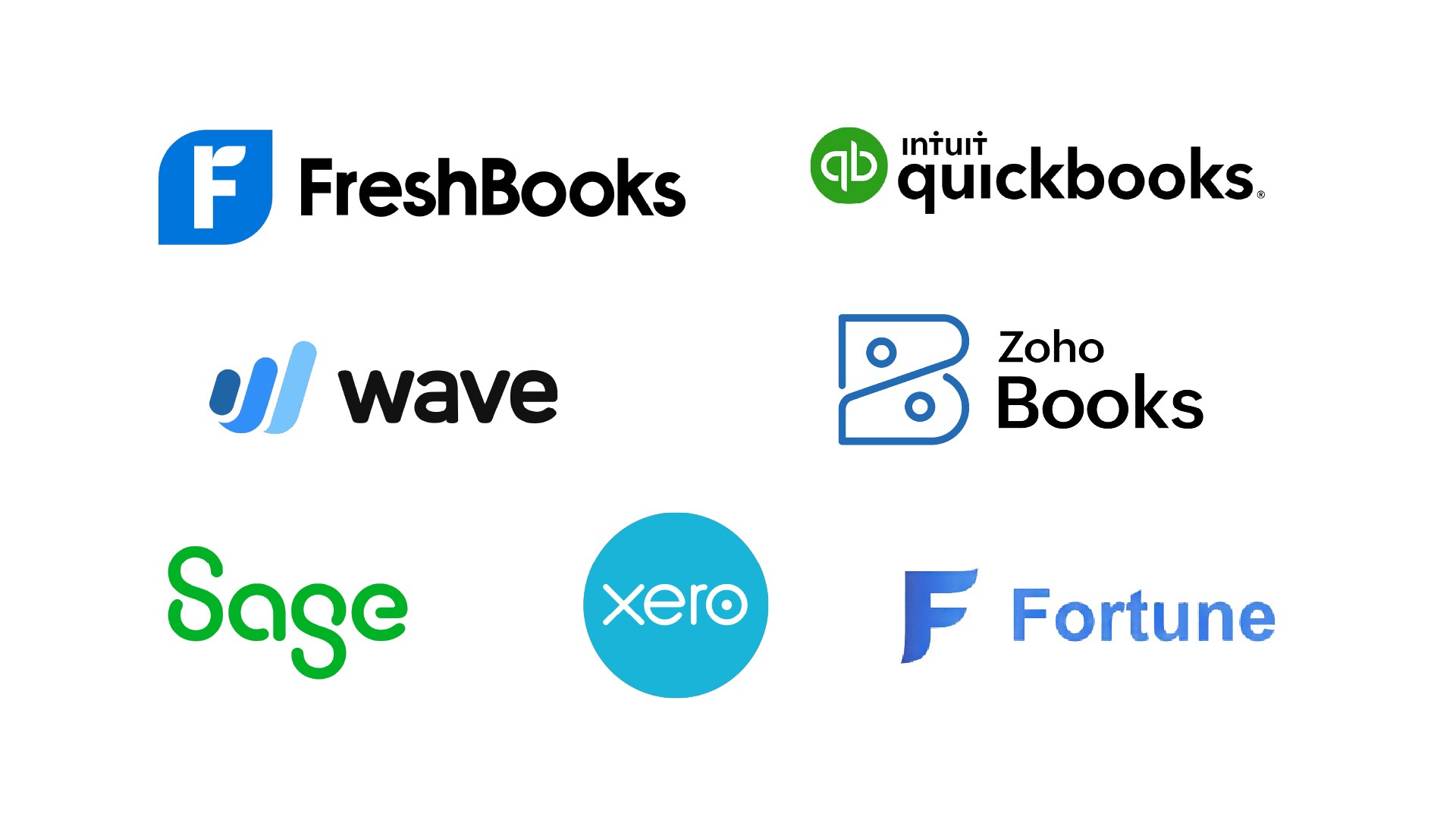
Back to Blog
Share Post:

AI
Jan 3, 2024
How AI transforms traditional accounting.
Artificial intelligence is the science behind making machines or computers think like humans. AI can do things that are considered “intelligent”, or at least, that’s what the end goal is.
The most effective feature of AI technology is that it can process large amounts of data in ways, unlike humans.
On the other hand, we have accounting - the process of recording financial transactions relevant to an entity, whether individual or business. This process includes, analyzing, summarizing and financially reporting these transactions to the relevant end authorities, which oversee the financial tracking of these entities.
In the realm of accounting, AI is being implemented to simplify accounting tasks. Tedious Excel and Google Sheets operations can be streamlined with AI accounting tools. These tools automate data entry, reduce errors, and generate insightful financial reports effortlessly.
By leveraging AI, businesses can save time and resources, making their accounting processes more efficient and reliable. This innovation benefits organizations by enhancing accuracy and allowing staff to focus on higher-value financial analysis and decision-making, ultimately boosting productivity.
The Evolution Of Accounting
The evolution of accounting is a journey that spans millennia. In ancient times, it began with simple tally marks on clay tablets, evolving to double-entry bookkeeping in the Renaissance era. The Industrial Revolution used ledgers and spreadsheets to manage complex financial records.
However, in recent decades, the advent of accounting software has revolutionized the field. With the rise of digital technology, tasks like data entry, calculations, and financial reporting have become streamlined.
Today, modern accounting software automates many functions, reducing errors and enhancing efficiency.
It offers real-time insights, making financial management more accessible to businesses of all sizes. The evolution of accounting is a testament to human ingenuity and adaptability, simplifying financial tasks for businesses and accountants alike.
Why Is There A Need For AI In Accounting
The limits of traditional accounting practices drive the need for AI in accounting. These traditional approaches are frequently time-consuming, prone to human error, and incapable of dealing with the increasing complexity of financial data in today's commercial environment.
One key issue with traditional accounting is the manual data entry process, which is boring and prone to mistakes. With its automation capabilities, AI streamlines data entry by extracting information from documents and receipts, reducing errors and saving valuable time.
Additionally, human accountants may struggle to analyze large datasets comprehensively. On the other hand, AI can swiftly process vast amounts of financial data, uncovering patterns and trends that might go unnoticed by human eyes. This empowers accountants to make more informed decisions.
In summary, AI in accounting addresses the shortcomings of traditional methods by automating data entry, enhancing data analysis, improving fraud detection, and providing predictive capabilities. By embracing AI, accountants can work more efficiently, reduce errors, and contribute to the financial health of their organizations.
Understanding How AI Works In Accounting
Understanding AI
Artificial Intelligence (AI) is a technological marvel that enables computers to perform tasks that usually require human intelligence. AI systems can process data, recognize patterns, make decisions, and even understand human language.
AI's Role in Accounting
AI plays a pivotal role in accounting in automating and enhancing various financial processes. It helps accountants simplify and optimize their work, reduce manual labor, and improve accuracy.
Data Processing
AI excels at handling large volumes of financial data efficiently. It can swiftly extract essential information from invoices, receipts, and documents, allowing accountants to focus on more strategic tasks.
Data Analysis
AI's ability to analyze extensive datasets is indispensable for accountants. It aids in identifying irregularities, patterns, and trends, which is vital for fraud detection and financial forecasting tasks.
Natural Language Processing (NLP)
In accounting, NLP empowers AI to comprehend and generate human language. This capability is essential for reading and summarizing financial reports, communicating with clients, and providing insightful financial information.
Machine Learning
AI systems learn and adapt from past data, making them valuable for credit risk assessment and investment management in accounting.
AI in the Accounting Landscape
AI does not replace accountants; instead, it complements their skills. It improves efficiency, reduces errors, and elevates the quality of financial services, ensuring accountants can focus on more strategic and value-added aspects of their profession.
Understanding how AI operates in accounting is essential for accountants and financial professionals to stay competitive in the evolving landscape of finance.
The Benefits - How AI Is Set To Transform Traditional Accounting
In the rapidly changing world of finance, Artificial Intelligence (AI) is on the edge of revolutionizing traditional accounting. This section uncovers the practical advantages AI brings to accounting.
We'll explore how AI is poised to reshape traditional accounting, shedding light on the many benefits that await in the digital era of financial management in 4 point listed below.
1. Improved Accuracy
One of the significant benefits of AI in traditional accounting is the remarkable enhancement in accuracy it brings to financial processes. AI greatly enhances accounting accuracy, reducing errors in data entry and analysis.
It automates repetitive tasks and cross-references data, ensuring precise records and informed decisions. This accuracy bolsters trust and reliability in accounting, benefiting businesses and clients.
2. Enhanced Security
AI is poised to revolutionize traditional accounting, significantly bolstering security in the digital age. Its rapid detection of anomalies and patterns enhances data protection by alerting accountants to potential risks and blocking unauthorized access.
AI-driven encryption and authentication systems further safeguard sensitive data, ensuring financial information remains confidential and secure, reducing the risk of breaches and fraud.
3. Better Time Savings
AI in accounting streamlines routine tasks, saving time for professionals. Data entry and categorization automation allows more focus on complex, strategic work. Rapid data processing aids in tasks like fraud detection, improving efficiency.
This efficiency empowers accountants to enhance productivity, provide better client advice, and make informed decisions, elevating the quality of financial services and making AI a valuable addition to traditional accounting.
4. Easily Scalable
AI in accounting presents a clear advantage in scalability. Unlike traditional accounting methods that rely heavily on human resources, AI systems can effortlessly handle increased workloads.
As business operations expand, AI can adapt without hiring and training additional personnel.
This scalability ensures that accounting processes remain efficient, cost-effective, and capable of accommodating growing demands.
What Accounting Tasks Can Be Automated With AI?
In the ever-evolving world of finance, the integration of AI has brought about significant changes. This section delves into the practical aspects of AI transforming the accounting landscape. We'll explore the specific tasks that can be automated, enabling accountants to allocate their expertise more strategically in 4 point listed below.
1. Expense Management
AI can significantly streamline the process of expense management in accounting. It automates the collection, categorization, and reconciliation of expenses, reducing the need for manual data entry.
AI systems can quickly identify duplicate receipts, ensure compliance with company policies, and flag suspicious transactions.
This automation saves time and enhances accuracy, allowing accountants to focus on more strategic financial tasks while maintaining a tight grip on expense control.
2. Payroll Management
AI simplifies payroll management in accounting. It automates the calculation of employee salaries, taxes, and deductions, reducing the risk of human error.
With AI, payroll processing becomes faster and more efficient. It can handle complex payroll regulations, ensuring compliance with tax laws.
By automating payroll tasks, AI empowers accountants to focus on strategic financial analysis and decision-making, ultimately increasing productivity and accuracy in the accounting profession.
3. Financial Tracking and Reporting
AI can automate tasks like tracking financial transactions, generating reports, and summarizing financial data.
It simplifies data entry, reduces human error, and accelerates reporting. This automation ensures that financial reports are accurate, timely, and compliant, allowing accountants to focus on more strategic activities.
4. Predicting Finances and Expenses
With AI, predicting finances and expenses becomes more precise and efficient. Automation streamlines tasks like budgeting, forecasting, and expense analysis, allowing businesses to make informed financial decisions. AI's data-driven insights help organizations plan for the future and optimize their financial strategies.
The Best AI Accounting Tool In 2023
There’s a lot of AI tools that are taking the market by a storm, but in the world of accounting, AI is still quite fresh.
However, software like Fortune App, which is new in the market, infuses AI with accounting seamlessly, helping users easily plan and forecast their finances, while reshaping how businesses deal with accounting software.
One of the Best Accounting Software in 2023
Fortune App
Fortune App makes life easier by providing a mobile app, powered with AI, that let’s you forecast, plan, and manage your finances. It’s a cutting-edge financial management tool tailored to support financial management needs of high-income entrepreneurs.
Though it’s a relatively new app, Fortune App brings something which the accounting software world is crucially missing - mobility and agility.
With Fortune App, you’re able to track your expenses on the go, and help you simplify and automate financial management with the help of AI.
As of now, Fortune App is cross platform, available on both iOS and android, and acts as an extension of your accounting journey, helping businessmen reshape accounting, and making finances easier.
Pros
User-friendly and beginner-friendly with a minimal learning curve.
Cross platform, supports both iOS and Android devices
Uses Artificial Intelligence to easily forecast, plan, and manage finances
Integrates globally with 17,000+ banks across US, Canada and Europe
Relatively new app, meaning we respond quickly to customer feedback and changes
Expense category breakdown makes it easier for users to analyze their spending habits
Cloud-based, enabling access from multiple platforms.
Con
Limited integration with other software solutions.
Bottom Line
In conclusion, integrating AI into traditional accounting marks a significant shift toward enhanced efficiency and accuracy.
While challenges like initial investments and data security persist, the potential benefits of improved data processing, analysis, and strategic focus underscore the importance of embracing AI's transformative capabilities in the accounting field.
Frequently Asked Questions
1. How Will AI Transform Accounting
AI will streamline data entry, improve data analysis, enhance decision-making, and reduce errors in accounting, boosting efficiency and accuracy.
2. How Is AI Being Introduced In Accounting?
AI is introduced in accounting by automating data entry, analysis, and tasks like invoice processing, making the process more efficient.
3. Why Is AI Used In Accounting?
AI is used in accounting for increased efficiency, reduced errors, data analysis, pattern recognition, and improved financial forecasting.
4. What Are The Advantages and Disadvantages Of AI In Accounting?
Advantages of AI in Accounting:
Higher efficiency
AI Is able to automate a myriad of tasks,
Accurate financial data analysis
Analyze large amounts of data in seconds
Disadvantages of using AI in accounting:
Higher Initial costs
Data security concerns
Poses various adaptation challenges
Regulatory compliance
5. Is There An AI That Does Accounting?
Yes, AI-powered accounting software and tools automate various accounting tasks. Fortune App allows users to record financial transactions using AI, and even forecast and plan financials ahead of time using AI
Share Post:




